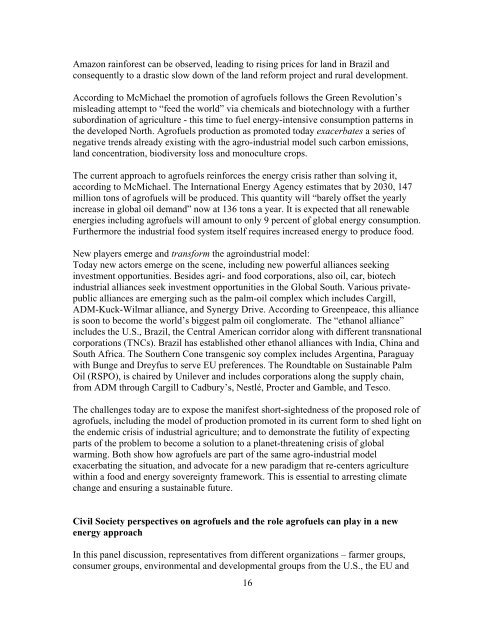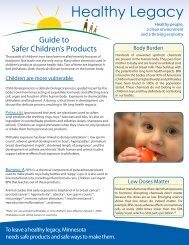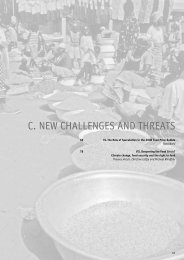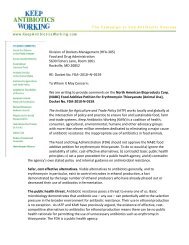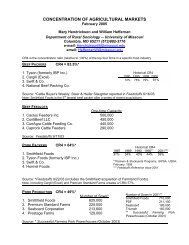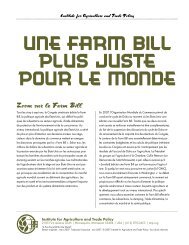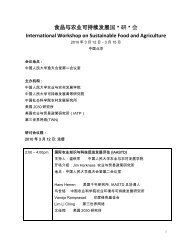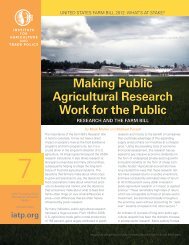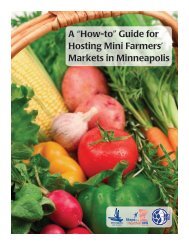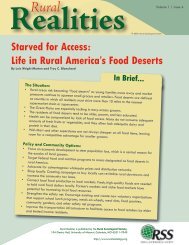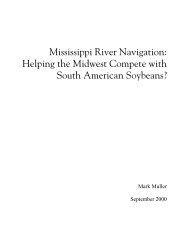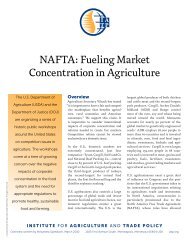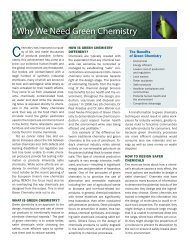Agrofuels: Opportunity or Danger? - Institute for Agriculture and ...
Agrofuels: Opportunity or Danger? - Institute for Agriculture and ...
Agrofuels: Opportunity or Danger? - Institute for Agriculture and ...
You also want an ePaper? Increase the reach of your titles
YUMPU automatically turns print PDFs into web optimized ePapers that Google loves.
Amazon rainf<strong>or</strong>est can be observed, leading to rising prices f<strong>or</strong> l<strong>and</strong> in Brazil <strong>and</strong><br />
consequently to a drastic slow down of the l<strong>and</strong> ref<strong>or</strong>m project <strong>and</strong> rural development.<br />
Acc<strong>or</strong>ding to McMichael the promotion of agrofuels follows the Green Revolution’s<br />
misleading attempt to “feed the w<strong>or</strong>ld” via chemicals <strong>and</strong> biotechnology with a further<br />
sub<strong>or</strong>dination of agriculture - this time to fuel energy-intensive consumption patterns in<br />
the developed N<strong>or</strong>th. <strong>Agrofuels</strong> production as promoted today exacerbates a series of<br />
negative trends already existing with the agro-industrial model such carbon emissions,<br />
l<strong>and</strong> concentration, biodiversity loss <strong>and</strong> monoculture crops.<br />
The current approach to agrofuels reinf<strong>or</strong>ces the energy crisis rather than solving it,<br />
acc<strong>or</strong>ding to McMichael. The International Energy Agency estimates that by 2030, 147<br />
million tons of agrofuels will be produced. This quantity will “barely offset the yearly<br />
increase in global oil dem<strong>and</strong>” now at 136 tons a year. It is expected that all renewable<br />
energies including agrofuels will amount to only 9 percent of global energy consumption.<br />
Furtherm<strong>or</strong>e the industrial food system itself requires increased energy to produce food.<br />
New players emerge <strong>and</strong> transf<strong>or</strong>m the agroindustrial model:<br />
Today new act<strong>or</strong>s emerge on the scene, including new powerful alliances seeking<br />
investment opp<strong>or</strong>tunities. Besides agri- <strong>and</strong> food c<strong>or</strong>p<strong>or</strong>ations, also oil, car, biotech<br />
industrial alliances seek investment opp<strong>or</strong>tunities in the Global South. Various privatepublic<br />
alliances are emerging such as the palm-oil complex which includes Cargill,<br />
ADM-Kuck-Wilmar alliance, <strong>and</strong> Synergy Drive. Acc<strong>or</strong>ding to Greenpeace, this alliance<br />
is soon to become the w<strong>or</strong>ld’s biggest palm oil conglomerate. The “ethanol alliance”<br />
includes the U.S., Brazil, the Central American c<strong>or</strong>rid<strong>or</strong> along with different transnational<br />
c<strong>or</strong>p<strong>or</strong>ations (TNCs). Brazil has established other ethanol alliances with India, China <strong>and</strong><br />
South Africa. The Southern Cone transgenic soy complex includes Argentina, Paraguay<br />
with Bunge <strong>and</strong> Dreyfus to serve EU preferences. The Roundtable on Sustainable Palm<br />
Oil (RSPO), is chaired by Unilever <strong>and</strong> includes c<strong>or</strong>p<strong>or</strong>ations along the supply chain,<br />
from ADM through Cargill to Cadbury’s, Nestlé, Procter <strong>and</strong> Gamble, <strong>and</strong> Tesco.<br />
The challenges today are to expose the manifest sh<strong>or</strong>t-sightedness of the proposed role of<br />
agrofuels, including the model of production promoted in its current f<strong>or</strong>m to shed light on<br />
the endemic crisis of industrial agriculture; <strong>and</strong> to demonstrate the futility of expecting<br />
parts of the problem to become a solution to a planet-threatening crisis of global<br />
warming. Both show how agrofuels are part of the same agro-industrial model<br />
exacerbating the situation, <strong>and</strong> advocate f<strong>or</strong> a new paradigm that re-centers agriculture<br />
within a food <strong>and</strong> energy sovereignty framew<strong>or</strong>k. This is essential to arresting climate<br />
change <strong>and</strong> ensuring a sustainable future.<br />
Civil Society perspectives on agrofuels <strong>and</strong> the role agrofuels can play in a new<br />
energy approach<br />
In this panel discussion, representatives from different <strong>or</strong>ganizations – farmer groups,<br />
consumer groups, environmental <strong>and</strong> developmental groups from the U.S., the EU <strong>and</strong><br />
16


